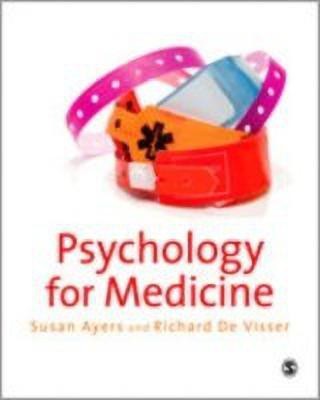Psychology for Medicine(English, Hardcover, Ayers Susan)
Quick Overview
Product Price Comparison
"As the fundamental importance of psychological aspects of medical practice becomes ever more evident, and a correspondingly greater knowledge of psychology is required of medical graduates, books like this one must become essential reading for all medical students." - Michael Sharpe MD, FRCP FRCPsych, Professor of Psychological Medicine, University of Edinburgh "It's a great textbook, the application to Medicine is nicely outlined and the case studies illustrating the points further are brilliant. It's easy to read and follow and really highlights the importance of Psychology in Medicine. I will definitely be recommending this text to my students!" - Dr Harbinder Sandhu, Health Psychology Institute of Clinical Education, University of Warwick This first-of-its-kind, comprehensive textbook covers all the psychology an undergraduate medical student needs to know. The authors show the importance of applied psychological theory and evidence to medicine, and offer enough depth on the subject to span an entire degree. Split into four sections, the book is a unique mix of psychological theory and evidence with implications for clinical practice, clinical tips and case studies. Psychology and Health: covers core topics such as stress, symptom perception, health behaviour and chronic illness. Basic Foundations of Psychology: explores areas of biological, developmental, cognitive and social psychology relevant to medicine. Body Systems: psychological research specific to body systems, including cardiovascular, respiratory, gastro-intestinal, immunology and reproduction. Health-Care Practice covers clinical skills and practice, including chapters on evidence-based medicine, communication skills and psychological intervention. With a full colour text design, each chapter follows the same accessible format which includes summaries, learning objectives, case studies, research examples, applications to clinical practice, further reading and short answer questions. They include the latest psychological theory and research evidence.


